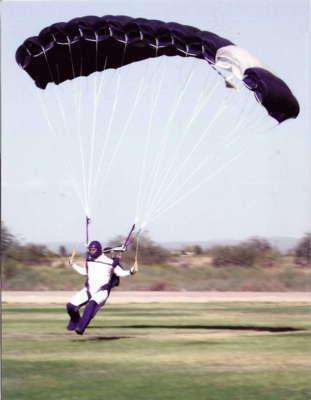Recommended Posts
riddler 0
Quote100% inspection is exactly what they are now requiring.
Is exactly what who is requiring?
sundevil777 93
QuoteQuote
--------------------------------------------------------------------------------
100% inspection is exactly what they are now requiring.
--------------------------------------------------------------------------------
Is exactly what who is requiring?
100% inspection (for the time period affected) is now required per the service bulletin.
BadDog 0
QuoteI'm guessing that it is a lot that is affected and the lot was sold during those dates.
Hook
Yah, so they found these pins in the first half of 2002. Why are they just now coming out with a MSB? Over a year later! And with a test that many have questioned its reliability.
www.diverdriver.com
ATP/D-19012
FB #4125
Hooknswoop 19
QuoteYah, so they found these pins in the first half of 2002. Why are they just now coming out with a MSB? Over a year later! And with a test that many have questioned its reliability.
I honestly don't know. I tested a ripcord for a customer recently and it failed. He contacted the container manufacturer, Sun Path, and they are sending him a new handle free of charge. They told him that they are having to eat the cost of the new handles.
I would think that the liability risk if someone went in due to a failed ripcord pin would be a greater financial risk for CW than a recall. CW should release more information about the pins, the tests, and clean up the SB.
Any MFF people out there know what is happening to military rigs w/ affected ripcords? Replacement, tests, nothing? I'm sure CW doesn't want to lose the U.S military as a customer.
I'm trying to give them the benifit of the doubt, but it isn't easy.
Derek
Ricx 0
Is there a serial number on the pull handle that the pin and cable are threaded through. Will it be detailed in my papers where the serail number of the container is???
does it only apply to rigs that were manufactured between a certain dates??
tombuch 0
Quote
Yah, so they found these pins in the first half of 2002. Why are they just now coming out with a MSB? Over a year later! And with a test that many have questioned its reliability.
I've spoken with the folks at Capewell three times over the past few weeks, and also checked in with several of the major rig manufacturers.
As far as I can tell, the first 2 pin failures (broken pins) were on Mirage rigs in EARLY 2003. Mirage wanted Capewell to issue a recall ASAP, but Capewell stalled. There were two additional failures in about June 2003.
When I first spoke with Bob Francis, VP and General Manager at Capewell on July 11, 2003, he said he had been looking for the cause for months, and was actively working on a test with PIA, hoping to have it available for field use by about July 14-15. The field test was issued July 15. According to Mr. Francis, the field test was developed by Sandy Reid, Committee Chairman of the PIA Technical Committee, and was applied under field conditions prior to release by Capewell.
According to my most recent conversation with Mr. Francis on July 18 (last Friday), Capewell still doesn't know what the root cause of the brittle pins is, nor have they been able to identify a specific batch of pins. They know there have been several changes in the production process over the past two years, but they do not know if the problem is related to those changes, or to a metal issue. Thus, they have decided to be cautious and extend the inspection program to the period prior to recent manufacturing changes.
According to Mr. Francis, Capewell did NOT know of any problem until two pins broke on Mirage rigs in early 2003.
Capewell, as a company, has also undergone a few changes recently;
Bob Francis joined the company as Vice President, General Manager in March 2003. (According to Capewell press releases).
The Quality Control manager left the company sometime after the initial Mirage problem was discovered in April 2003. (According to Mr. Francis, and rig manufacturers).
Sally Baumann joined Capewell as a new Engineering Director in June 2003. (According to Capewell press releases).
I think the new management team at Capewell is probably a bit overwhelmed by this issue, and may be struggling to deal with it. The broken pin issue is both a manufacturing and public relations/marketing problem, and while the company has several decades of ripcord manufacturing experience, they have very limited experience dealing with end users in the civilian market.
As we criticize Capewell for producing a test that at least some people in the industry feel is rushed and ineffective, lets also remember that just two weeks ago we were criticizing them for not doing anything. Let's also keep in mind that this test was developed with input from PIA, and although perhaps not the ideal solution, is at least a start. If nothing else, the test should give us (and Capewell) a better handle on how widespread the brittle steel problem is, and it should give end users a better understanding of their gear.
It would be great if there was a handbook to tell a company how to deal with an emergency recall, but there isn't such a book...Capewell is learning the process as they go. Let's give them some credit for the things they have done well (being overly cautious and extending the inspection to November 2001), and let's continue to prompt them to seek a manufacturing cause and solution, and to improve the way they deal with end users of their products.
Tom Buchanan
S&TA The Ranch
Senior Parachute Rigger
Author JUMP! Skydiving Made Fun and Easy
Instructor Emeritus
Comm Pilot MSEL,G
Author: JUMP! Skydiving Made Fun and Easy
ltdiver 3
ltdiver
Don't tell me the sky's the limit when there are footprints on the moon
Also, I am sure the test as devised is worth something. I just think the instructions may be flawed. I believe that more than one Rigger has done it incorrectly and bent pins that would not have otherwise bent. Then there is the whole "who pays for it" problem. No direction has been given. I think each rig manufacturer should put out whether they are or are not supplying replacement ripcords free of charge. Some gear stores are charging for new handles. If it's a handle that will be replaced free of charge then they need to tell their customers about it.
I know things will get sorted out and I'm not bashing CW. I'm just pointing out that there are issues that need to be addressed and I know there are those on here that are in contact with CW about this.
I've seen my share of aircraft parts that have been recalled and gone bad. I don't think the skydiving industry has to reinvent the wheel (boy, where have I heard that before) when it comes to recalls. Just look at what aircraft and parts manufacturers there have done. I think they do have a system for handling recalled parts and then modifiy it for the current situation.
www.diverdriver.com
ATP/D-19012
FB #4125
riddler 0
As far as I know, Capewell is requiring all pins manufactured in the timeframe of the recall to be tested. However, pins manufactured outside that time frame and pins manufactured by other companies are not subject to the test. Yet.
So, are there any entites (organizations, dropzones, boogies, et al) outside of Capewell that are requiring pin tests? And if so, are they requiring all pins to be tested, or just the ones that Capewell is recalling? The one I'm concerned with now, is what, exactly, will be required at the freefall convention?
kallend 1,623
Steel is a complex material but it is pretty well understood. I have done failure analyses on many broken items as an expert witness, and never yet has it been impossible to find the root cause of a failure. Modern metallurgical techniques allow detailed analysis of composition, residual stresses and microstructure to be obtained pretty quickly. Has this been done?
JK, Professor of Engineering, IIT
The only sure way to survive a canopy collision is not to have one.
Remster 24
would it be out of line for you to contact CW and offer your services? There cant be too many skydiving mat. engineers....
BadDog 0
Quote
It would be great if there was a handbook to tell a company how to deal with an emergency recall
See https://www.cpsc.gov/businfo/8002.html









100% inspection is exactly what they are now requiring. It had better not damage the pins.
edit - when the cable is swaged on, isn't it required to do a pull test? Why not do a bend test at that time also? I don't accept that it is unpractical or uneconomical. Of course it may not be done at Capewell, but it doesn't matter.
If Capewell is not now inspecting all of them, how do they know the problem will not continue - just by whether more problems are reported? Remember, Capewell says they don't know what the problem is/was, just the symptom, so how do they know it is gone?
Share this post
Link to post
Share on other sites